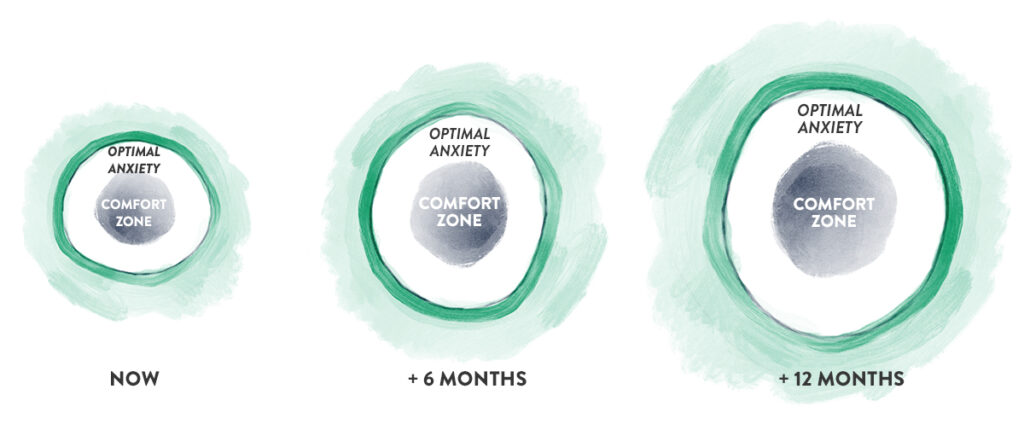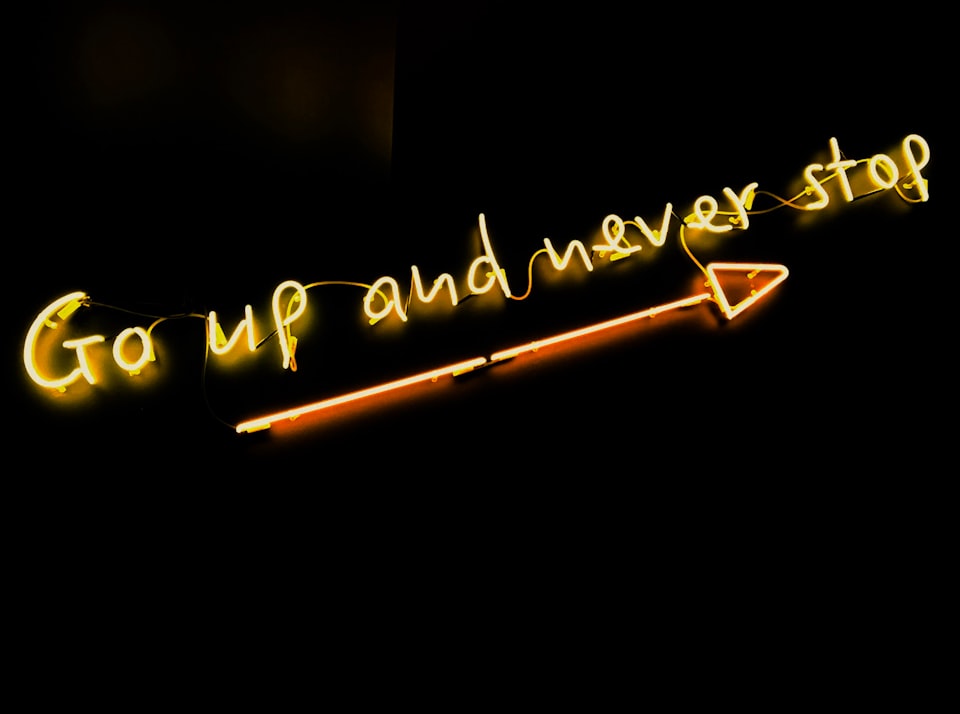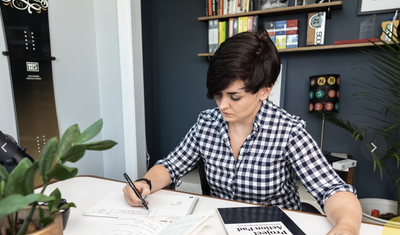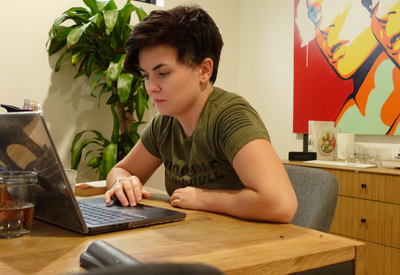Over the past few years since I’ve left Architecture and exchanged it for Entrepreneurship, many people have asked me what my “secret” was.
If I had to drill it down to one thing it would be simply this, “I made myself uncomfortable”.
What does this mean?
It means I moved beyond doing the things that were comfortable to me so I could expand my horizons. Had I continued doing the same things I had always done, I would get what I had always gotten — which I knew was not what I wanted. This meant meeting new people who were doing the things I wanted to do, learning new skills (specifically around creating and running a business), and overall gaining new experiences.
Pushing our limits
When we’re children our parents play the role of pushing us past our limits, whether it’s learning to walk, ride a bicycle or potty training. As a result, we typically learn and develop new skills quickly.
When we’re older, it is our peers that push us outside of our limits, which is why you need to be conscious about who you spend your time with as these people will shape who you are and how far you go.
“You’re the average of the five people you spend the most time with.”
– Jim Rohn
If you are in a group of friends who are overweight due to bad eating and health habits, chances are you will be the same. To push your limits as an adult, you should find a group of people who are always pushing their level of comfort and join them.
Desperation vs. Inspiration
People move beyond their comfort zone for one of two reasons, desperation or inspiration. Desperation is usually when the universe throws you into the thick of it, and you have no choice but to get uncomfortable, for example, if you get laid off and have to find another job, you start doing the things that you need to.
Another part of the desperation cycle is when the pain of not making a change becomes greater than the fear of being uncomfortable, for example, someone who has been trying to lose weight for years and something finally clicks/snaps and they stick to their diet/workout regime that time.
Inspiration is a better place to come from. However, it can be harder to stick with unless you have a goal you’re striving for. Therefore set a goal for yourself, write affirmations, and tell people what you’re working towards.
“Nobody ever died of discomfort, yet living in the name of comfort has killed more ideas, more opportunities, more actions, and more growth than everything else combined. Comfort kills!” — T. Harv Eker
Outside Comfort Zone = Optimal Anxiety
In 1908, Harvard psychologists Robert M. Yerkes and John D. Dodson researched how the state of relative comfort created a constant level of performance. To maximize your performance you need to get into a state of optimal anxiety, which happens right outside your comfort zone. This is the spot where you’re motivated to succeed yet not too far outside your zone of comfort that your anxiety will cause your performance to take a dive.
The thing about getting outside your comfort zone is that once you start doing it, your circle of comfort will expand to these new experiences, this means that over time, what was uncomfortable before will soon become the standard for you as you have increased your circle of comfort.
“Life begins at the end of your comfort zone” – Neale Donald Walsch
By continuing to step outside your comfort zone, you’ll constantly be growing and expanding your circle of comfort. Like this:

Here are five ways you can use to start expanding your comfort zone:
1. Do one thing every week that scares you
These days if something scares me, I know I have to do it (e.g. running a Spartan race.) It doesn’t have to be skydiving or anything crazy, and it could be complimenting a stranger, being the first in class to ask a question or traveling alone to a new place.
2. Create a plan
Make a list of things you’ve always wanted to do or achieve, but haven’t. Create a timeline and rough guide to how you might accomplish this. For example, maybe, you want to learn French, you could sign up for DuoLingo and create a daily habit of doing 20 minutes per day. If you want to get really crazy, book a flight to Paris for six months in the future, and go alone so that you’re forced to speak French.
3. Make your goals public
Post on social media and tell your friends and family. The accountability of wanting to save face in front of people you admire will ensure you don’t give up or not take action. Experience is worth more than embarrassment.
4. Create negative consequences
Studies have shown that humans tend to be more likely to take action if they fear losing something, rather than gaining something. Therefore set a negative impact on yourself. Something I did at one time was I had to publish a blog post every week or my friend Bryan would charge my credit card $500 to go to charity… guess who didn’t miss a post?
5. Make the uncomfortable choice
With most everyday decisions there’s usually a safe/comfortable choice and a risky/uncomfortable choice. Try to start picking the risky/uncomfortable choice as it is the one that you’ll learn the most from. It could be something as small as trying a new dish at the restaurant, and maybe you’ve always wondered what Octopus tasted like but never had the guts to order it. Risk teaches us more about ourselves than anything else.
The more comfortable you get with exploring new ideas and gaining new experience the more aware you will be of how much you are capable of.
What have I done in the past three months to expand my comfort zone?
- I signed up and ran a Spartan Race
- I agreed to speak on stage at an entrepreneurship event (public speaking = scary)
- I volunteered for a political campaign (door-to-door canvassing with strangers, phone banking, etc.)
- Launched my first digital course, From Zero to Funded
- Started re-learning French
Become a subscriber receive the latest updates in your inbox.






